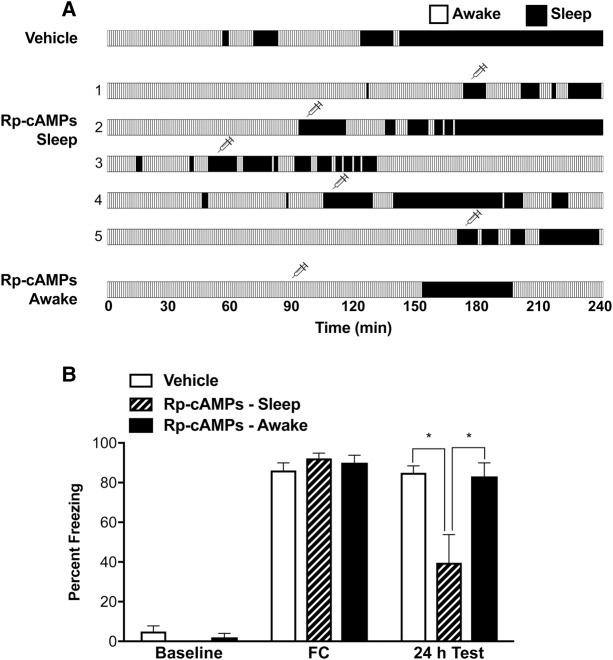Figure 2.
Effects of PKA inhibition on long-term fear memory. (A) Sleep–wake profile following fear conditioning (FC), along with time point of bilateral intrahippocampal injections, as marked by syringe symbol. Note that the AW animals were injected at comparable times to the SLEEP animals. For vehicle-injected control animals, only representative data is plotted. For Rp-cAMPs-injected animals, the data were individually plotted. Each vertical bar represents 1 min. Average total time spent in sleep was not significantly different between vehicle-injected (71.75 ± 14.15 min), Rp-cAMPs-injected in sleep (75.2 ± 14.45 min), and Rp-cAMPs-injected in awake state (43.6 ± 13.18 min) (P > 0.1 for all comparisons). (B) Effects of bilateral intrahippocampal injection of the PKA inhibitor Rp-cAMPs on long-term contextual fear memory. All animals showed near-zero freezing behavior during baseline recording and robust freezing following conditioning. Fear memory was measured 24 h later in the same context. Injection of Rp-cAMPs (20 mM, 3 µL) in SLEEP animals (n = 5) produced significantly impaired consolidation of contextual fear memory, compared to the vehicle injected controls (n = 9). In contrast, for animals injected with Rp-cAMPs in the awake state (n = 5), no long-term memory deficits were observed. Results are presented as mean ± SEM percent freezing; (*) P < 0.05.

